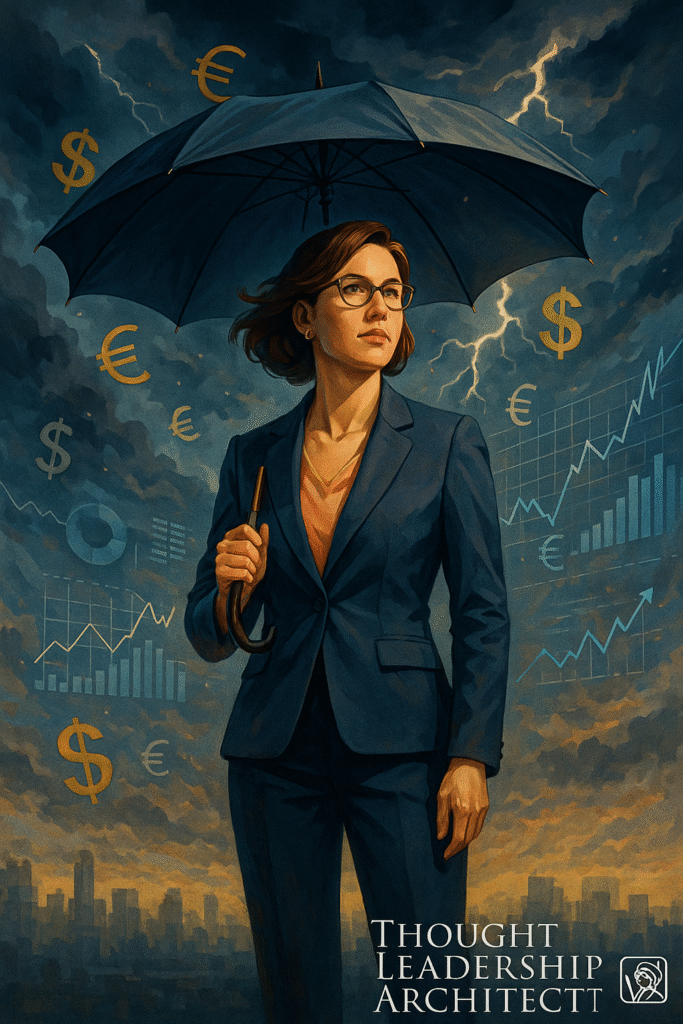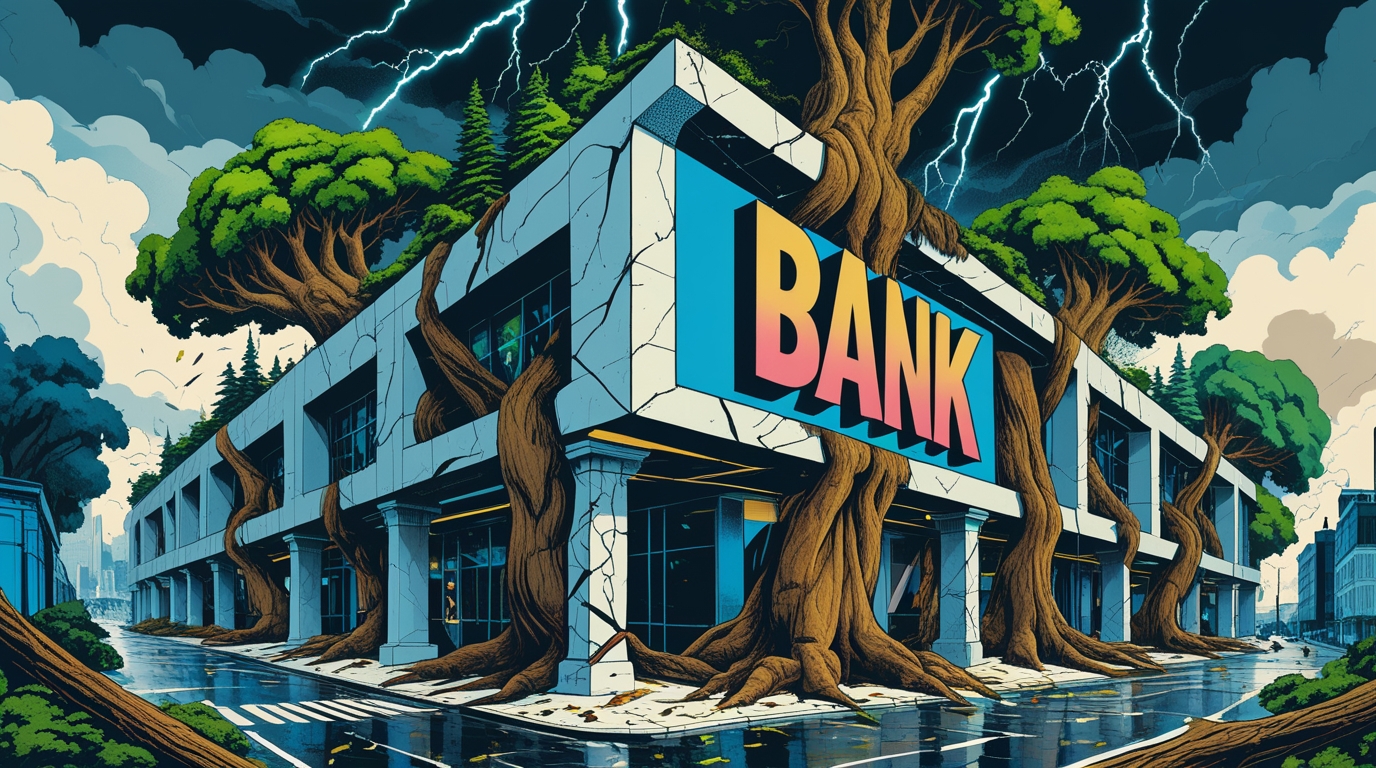The Climate Clock Is Ticking—And Banks Are On the Hook
Climate change is no longer a distant threat or a back-page headline. It’s a balance sheet liability, a regulatory imperative, and—critically—a litmus test for leadership in the financial world. Global banks, including Barclays, HSBC, and others, are under increasing pressure to assess and manage climate-related financial risk with unprecedented transparency and accountability.
This isn’t just about compliance. It’s about positioning, reputation, and the long-term survivability of financial institutions and the businesses they serve.
Why It Matters for Thought Leaders in Finance
In June 2025, Barclays faced pointed criticism from UK regulators regarding its fossil fuel lending and exposure to climate-sensitive assets. The Financial Conduct Authority (FCA) and the Bank of England’s Prudential Regulation Authority (PRA) have signaled a new era of scrutiny—expecting banks to not only disclose risk but actively plan for a decarbonized future.¹
For executives in finance and enterprise leadership, the implications are clear: climate competency is now leadership currency.
“It’s no longer enough for boards to note climate risk in passing,” says Dr. Sarah Breeden, Deputy Governor for Financial Stability at the Bank of England. “It must be embedded in how capital is allocated and how businesses are governed.”²
Climate Risk = Financial Risk
Climate-related financial risks are typically divided into two categories:
- Physical risk: damage to assets and operations from floods, fires, storms, and droughts.
- Transition risk: economic disruption due to shifts in climate policy, market preferences, or technology (e.g., carbon pricing, electrification).
According to the Network for Greening the Financial System (NGFS), both risk types have “material impact” on financial institutions’ stability and require scenario analysis, stress testing, and long-horizon risk planning.³
For thought leaders, this translates into a strategic mandate: climate foresight must be built into boardroom conversations, financial modeling, and brand narrative.
The Real Risks for Banks and Businesses
Banks are uniquely vulnerable because of their exposure to:
- Carbon-intensive clients and assets
- Climate-impacted geographies
- Legal risk and greenwashing allegations
- Reputational fallout
Just last year, BNP Paribas and Barclays were named in lawsuits by environmental groups for continuing to finance oil and gas expansion despite public ESG commitments.⁴ Whether or not those suits succeed, the message is clear: accountability is coming from markets, regulators, and civil society—not just shareholders.
Thought Leadership in a Climate-Conscious Economy
Businesses that proactively embrace climate accountability can reframe the narrative—not as risk management, but as brand elevation.
“Sustainability used to be PR. Now it’s due diligence,” says Anne Simpson, Global Head of Sustainability at Franklin Templeton. “If you’re not fluent in climate strategy, you’re not credible in capital markets.”⁵
The most effective thought leaders are already:
- Integrating climate scenario modeling into financial forecasts
- Publishing clear ESG reporting with real benchmarks
- Aligning with frameworks like TCFD (Task Force on Climate-related Financial Disclosures)
- Shaping investor confidence through strategic storytelling
In other words, the edge belongs to those who own the narrative—not those who chase it.

Three Ways Financial Leaders Can Respond
1. Move from Risk Disclosure to Risk Design
Don’t just report exposure. Show how your institution or client is actively redesigning portfolios, underwriting practices, and asset strategies in response to climate realities.
💡 Example: NatWest’s climate transition plan includes sector-specific lending thresholds and measurable carbon intensity targets.
2. Speak the Language of Resilience
Your next pitch deck or shareholder letter should include words like “scenario planning,” “transition finance,” and “embedded sustainability risk.” These aren’t buzzwords. They’re strategic flags for long-term viability.
💬 “The institutions that thrive will be those who match words with working models of resilience,” says Peter Bakker, CEO of the World Business Council for Sustainable Development.⁶
3. Reposition Climate as a Strategic Advantage
The most compelling leaders frame climate engagement not as cost—but as capacity: to enter new markets, attract new capital, and lead across regulatory thresholds.
Your thought leadership content can drive that conversation—through white papers, keynotes, board briefings, and media interviews that position you as both informed and future-facing.
Encouragement for the Forward-Focused
For business owners, executives, and strategists watching this shift unfold, it’s tempting to feel overwhelmed. But Scripture reminds us:
“The plans of the diligent lead surely to abundance.” — Proverbs 21:5, NIV
This is not a time to panic. It’s a time to prepare—and position your voice and your company as a builder of solutions in a turbulent world.
“You were born for this moment. The world needs leaders who can see beyond fear and speak from faith.” — Christine Caine⁷
Climate change is not just a planetary emergency—it’s a business transformation engine. And in today’s market, the leaders who thrive are the ones who stand boldly at the intersection of ethics, risk, and strategy.
In other words, the future isn’t just green. It’s led by those who prepare for it.
Bibliography
- Reuters. “Barclays Under Scrutiny Over Climate Risk Management.” June 2025.
- Bank of England. “Speech by Dr. Sarah Breeden.” April 2025.
- Network for Greening the Financial System (NGFS). “Scenarios for Climate Risk Assessment.”
- Financial Times. “Barclays and BNP Paribas Face Climate Litigation.” 2024.
- Franklin Templeton. “Sustainability Reports & Interviews.” 2024.
- WBCSD. “CEO Insights: Strategic Resilience in Climate Uncertainty.”
- Caine, Christine. Undaunted: Daring to Do What God Calls You to Do. Zondervan, 2012.
#ClimateFinance #ESGRisk #ThoughtLeadership #Barclays #TransitionRisk #BusinessStrategy #FinancialLeadership #SustainableFinance #FutureReady #GreenBusiness #CorporateResponsibility #FaithInBusiness #ThoughtLeadershipArchitect



Leave a Reply